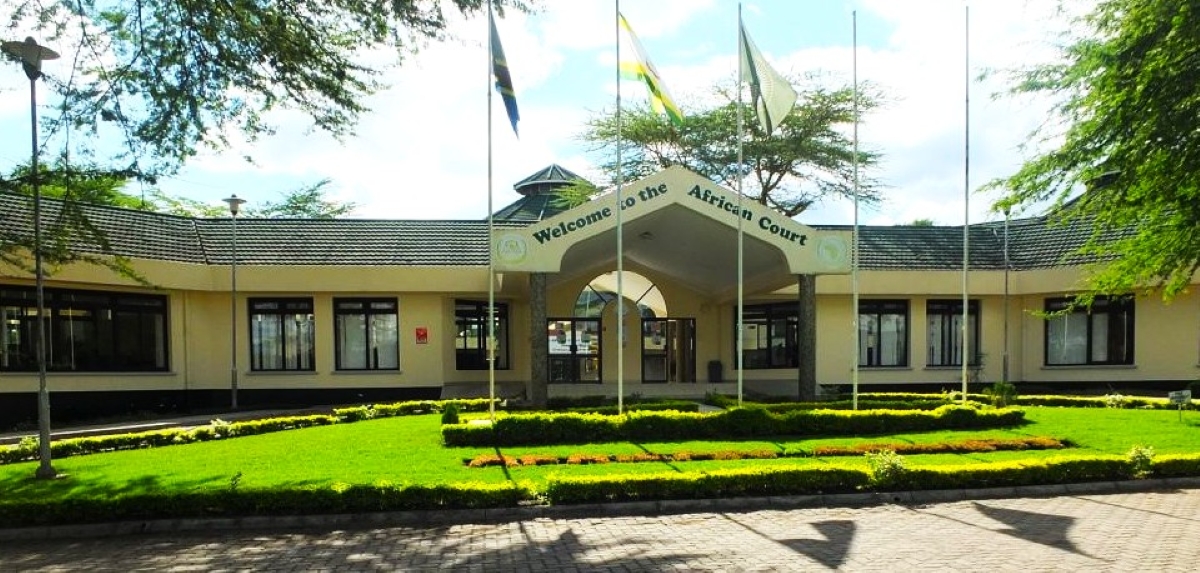Tanzania has been ordered by the African Court which the country hosts, to revise its outdated witchcraft laws in order to draw a clear line between traditional healers and witch doctors.
The African Court on Human and People’s Rights, made the suggestion while delivering the judgment on the case pitting the Center for Human Rights and others versus the United Republic of Tanzania regarding the issue of attacks of people with albinism in the country.
The case was submitted by the Centre for Human Rights, the Institute for Human Rights and Development in Africa, and the Legal and Human Rights Centre, with Tanzania losing.
The parties allege violations of the rights of persons with albinism (PWAs), including their persecution and humiliation, in particular, through attacks, killings and mutilations, in the territory of the United Republic of Tanzania.
Presenting part of the judgment for the Case number 019/2018 at the African Court in Arusha, Lady Justice Stella Isibhakhomen Anukam from Nigeria reminded that the attacks on people with albinism in Tanzania are usually associated with witchcraft beliefs.
Under non-pecuniary reparations, the Court ordered Tanzania, the Respondent State, to amend existing laws in order to criminalize and punish acts of violence that target People with Albinism (PWA) treating such acts as having been committed under aggravated circumstances.
One of the attorneys representing the applicants, Advocates Fulgence Massawe stated later that the Witchcraft Act was formulated during colonial days and specifically targeted to persecute Africans.
The African Court therefore ordered Tanzania, the Respondent State to amend the Witchcraft Act, 1928, Chapter 18 of the Laws of Tanzania, in order to clarify ambiguities in relation to witchcraft and traditional health practices.
Tanzania was also required to finalize, promulgate and implement its national plan of action on the promotion and protection of the rights of People with Albinism (PWA) in conformity with the African Union Plan of Action to End Attacks and other atrocities.
The applicants were presented by a team of three lawyers among them Advocates Fulgence Massawe, Michael Nyarko and Chipo Rushiwaya.
State attorneys, Hangi Chang’a, Daniel Nyakiha, Vivian Method and Narindwa Sekimanga, stood on behalf of the respondent, the United Republic of Tanzania in the matter.

Three witnesses, all being persons with albinism and victims of violations have been presenting their testimonies before a panel of nine judges led by the Vice President of the African Court Justice Sacko Modibo from Mali.
The Court then considered the Applicants’ prayers for reparations. Under Pecuniary reparations, the Court ordered the Respondent State to establish a compensation fund and pay into it the sum of Ten Million Tanzanian Shillings (10,000,000/-) for the moral prejudice suffered by People with Albinism (PWA).
The 10 million/- which will form seed money to the establishment of the compensation fund.
Furthermore, the Court ordered the Respondent State to take all necessary measures towards the full realization of the right to education; to take all necessary measures towards reinstate the right to the best attainable standard of health and take necessary steps to raise awareness on the myths regarding albinism through conducting far-reaching campaigns sustained continuously for at least two years.
Tanzania is also required to formulate and execute strategies that will ensure the full realization of the rights and welfare of children with albinism. This will, inter alia, as per the Court’s order, include initiatives on their security, psychosocial, medical and other assistance critical to their survival and development.
The Court ordered the Respondent State, in cooperation with the Applicants, to facilitate a comprehensive and coordinated effort to reduce overcrowding in the shelters, reunite families and ensure that children with albinism in these shelters have access to basic services.
The Respondent State was also ordered to publish the Judgment within a period of three months from the date of notification, on the websites of the Prime Minister’s Office – Labour, Youth, Employment and Persons with Disabilities, while the Judiciary and, the Ministry for Constitutional and Legal Affairs, ensuring that the text of the Judgment remains accessible.
All the steps that Tanzania is supposed to take aligns with the Plan of Action to End Attacks and Other Human Rights Violations Targeting Persons with Albinism in Africa (2021-2031), which is a 10-year plan that forms part of the African Union’s efforts to implement its African Union Disability Architecture including the African Union’s Disability Protocol.

